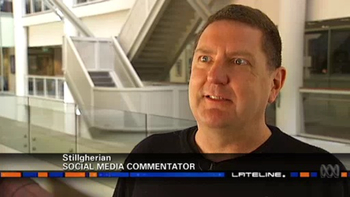 Last week Collective Shout activist and campaigns manager Caitlin Roper told her story of the horrific misogynist abuse she’d received online, and what can most politely be called a disappointing response from the police.
Last week Collective Shout activist and campaigns manager Caitlin Roper told her story of the horrific misogynist abuse she’d received online, and what can most politely be called a disappointing response from the police.
I reluctantly went to the police station, already knowing that threats against women online are not regarded as a priority. “Why don’t you just close down your account?” asked the officer taking my statement.
I explained how I used Twitter in the course of my work for a non-profit organisation. She pressed further — “but why do you need to use it?” — as if it was somehow unreasonable for me to believe I had as much right as anyone to access social media without threats
…
Another colleague went to the police after one man described how he intended to mutilate her body and dissolve it in acid. The police officer suggested that the internet was “not a very nice place”, and maybe she should stay off it.
Last night, ABC TV’s Lateline did a follow-up story, the reported being John Stewart, and I provided a few comments.
It’s interesting that the one piece they used was about the internet putting everyone right next to everyone else:
It’s simply that within the past people were in communities, that were mostly made up of people like them or people they grew up with. If there was a violent part of town or a red-light district or whatever it might be, and you didn’t want to go there or you didn’t want to know about it, well you just didn’t go there. The problem is now on the internet all of that is right next to you as well and people are shocked by this. They’re suddenly discovering that there are people not like them. They have different attitudes to women, different attitudes to acceptable language, to religion, to class, to sporting teams, to clothing as we’ve seen in the media lately. Everything.
I also said that thanks to the internet, we are now building a global society, and yet policing is organised on a regional or even local basis.
While these women, and so many others, have experienced appalling abuse, in most cases there’s no credible threat. Even if the police cranked up the mechanisms of transnational police cooperation, there’d be little chance of a prosecution leading to a conviction. Their lack of follow-up reflects that unfortunate reality, as well as many police officers’ unfamiliarity with online life.
I daresay I’ll have further thoughts in this, because this story certainly isn’t going away.
Yes, I know they spelt my name wrong. Yes, I know they said “social media commentator”.

